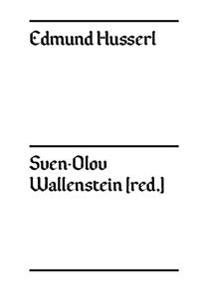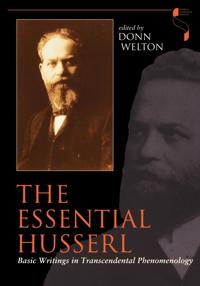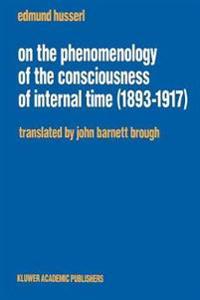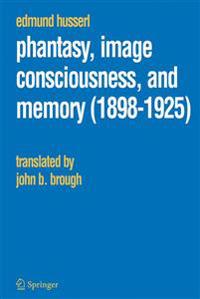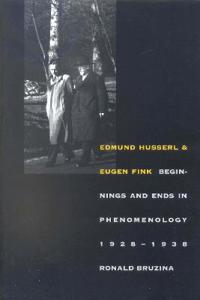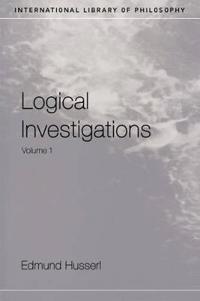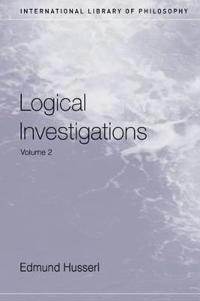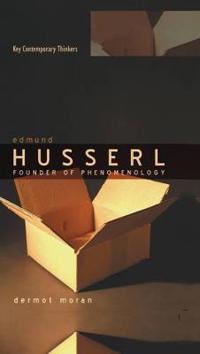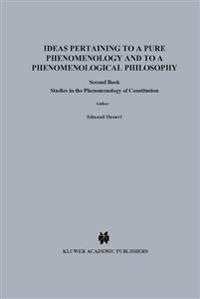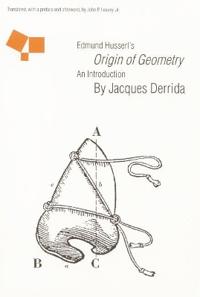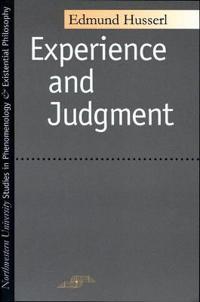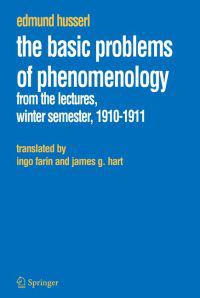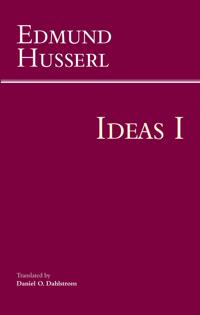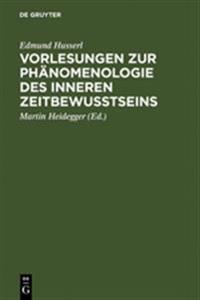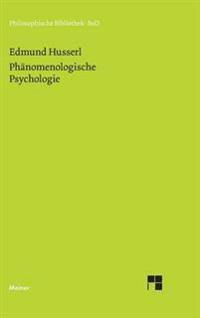Edmund Husserl (Häftad)
avDaniel Birnbaum, Jonna Bornemark, Marcia Sá Cavalcante Schuback, Jens Cavallin, Edmund Husserl, Samuel Ijsseling, Hans Ruin, Nicholas Smith
ISBN: 9789197859868 - UTGIVEN: 201103Edmund Husserl (1859-1938) är den moderna fenomenologins upphovsman, och hans program för att lägga en ny grund för filosofin och vetenskaperna har utövat ett närmast oöverskådligt inflytande. Husserl börjar i en reflexion över matematik och logik, men utvidgar detta snart till en analys [...]
The Essential Husserl (Häftad)
avEdmund Husserl, Donn Welton
ISBN: 9780253212733 - UTGIVEN: 1999-06The Essential Husserl, the first anthology in English of Edmund Husserl's major writings, provides access to the scope of his philosophical studies, including selections from his key works: Logical Investigations, Ideas I and II, Formal and Transcendental Logic, Experience and Judgment, Cartesian M[...]
On the Phenomenology of the Consciousness of Internal Time (Pocket)
avEdmund Husserl, John B. (TRN) Brough, Edmund Husserl
ISBN: 9780792315360 - UTGIVEN: 1992-03What follows is a translation of Volume X in the Husserliana series, the critical edition of the works of Edmund HusserI. I Volume X was published in 1966. Its editor, Rudolf Boehm, provided the title: Zur Phiinomen%gie des inneren Zeitbewusst- seins (1893-1917). Some of the texts included in Volume[...]
Phantasy, Image Consciousness, And Memory, 1898-1925 (Pocket)
avEdmund Husserl, John B. (TRN) Brough, Edmund Husserl
ISBN: 9781402032158 - UTGIVEN: 2007-04This is the first English translation of Husserliana XXIII, the volume in the critical edition of Edmund Husserl's works that gathers together a rich array of posthumous texts on representational consciousness. The lectures and sketches comprising this work make available the most profound and compr[...]
Edmund Husserl's Freiburg Years 1916-1938 (Inbunden)
ISBN: 9780300152210 - UTGIVEN: 2011-08In his award-winning book "The Philosophy of Edmund Husserl: A Historical Development", J. N. Mohanty charted Husserl's philosophical development from the young man's earliest studies - informed by his work as a mathematician - to the publication of his "Ideas" in 1913. In this welcome new volume, t[...]
Edmund Husserl & Eugen Fink
ISBN: 9780300182965 - UTGIVEN: 2004-12Eugen Fink was Edmund Husserl's research assistant during the last decade of the renowned phenomenologist's life, a period in which Husserl's philosophical ideas were radically recast. In this landmark book, Ronald Bruzina shows that Fink was actually a collaborator with Husserl, contributing indisp[...]
Logical Investigations (Häftad)
avEdmund Husserl
ISBN: 9780415241892 - UTGIVEN: 200107Edmund Husserl is widely regarded as one of the most influential philosophers of the twentieth century. The founder of phenomenology, the Logical Investigations is his most famous work. Published in two volumes in 1900, it had a decisive impact on the direction of twentieth century philosophy. It[...]
Logical Investigations (Häftad)
avEdmund Husserl
ISBN: 9780415241908 - UTGIVEN: 200107Edmund Husserl is widely regarded as one of the most influential philosophers of the twentieth century. The founder of phenomenology, the Logical Investigations is his most famous work. Published in two volumes in 1900, it had a decisive impact on the direction of twentieth century philosophy. It[...]
Ideas (Häftad)
avEdmund Husserl
ISBN: 9780415519038 - UTGIVEN: 201204With a new foreword by Dermot Moran 'the work here presented seeks to found a new science - though, indeed, the whole course of philosophical development since Descartes has been preparing the way for it - a science covering a new field of experience, exclusively its own, that of "Transcendental Sub[...]
Edmund Husserl: Founder of Phenomenology (Inbunden)
avDermot Moran
ISBN: 9780745621210 - UTGIVEN: 2007-11-30Edmund Husserl: Founder of Phenomenology (Häftad)
avDermot Moran
ISBN: 9780745621227 - UTGIVEN: 200509Dermot Moran provides a lucid, engaging, and critical introduction to Edmund Husserl's philosophy, with specific emphasis on his development of phenomenology. This book is a comprehensive guide to Husserl's thought from its origins in nineteenth-century concerns with the nature of scientific kn[...]
Ideas Pertaining to a Pure Phenomenology and to a Phenomenological Philosophy (Pocket)
avEdmund Husserl, R. (TRN) Rojcewicz, A. (TRN) Schuwer
ISBN: 9780792307136 - UTGIVEN: 1990-04As is made plain in the critical apparatus and editorial matter appended to the original German publication of Hussed's Ideas II, I this is a text with a history. It underwent revision after revision, spanning almost 20 years in one of the most fertile periods of the philosopher's life. The book owe[...]
Edmund Husserl's "Origin of Geometry" (Häftad)
avJacques Derrida, John P. Leavey
ISBN: 9780803265806 - UTGIVEN: 198906'One of Derrida's best' - "Radical Philosophy". 'Derrida's introduction is a detailed and illuminating study of Husserl and a model of excellence in the practice of phenomenology. Essential for the specialist in phenomenology and for everyone interested in science, philosophy, and their interface...[...]
Edmund Husserl
ISBN: 9780810104563 - UTGIVEN: 1974-06Winner of the 1974 National Book Award The product of many years of reflection on phenomenology, this book is a comprehensive and creative introduction to the philosophy of Edmund Husserl. Natanson uses Husserl's later work as a clue to the meaning of his entire intellectual career, showing how his [...]
Experience and Judgement (Pocket)
avEdmund Husserl, James Spencer (TRN) Churchill, Karl (TRN) Ameriks
ISBN: 9780810105959 - UTGIVEN: 1975-06The Basic Problems of Phenomenology (Häftad)
avEdmund Husserl
ISBN: 9781402037887 - UTGIVEN: 200609This book provides a short introduction to Husserlian Phenomenology by Husserl himself. Husserl highly regarded his work "The Basic Problems of Phenomenology" as basic for his theory of the phenomenological reduction. He considered this work as equally fundamental for the theory of empathy and inter[...]
Phenomenology of Intersubjectivity and Values in Edmund Husserl (Inbunden)
avSusi (EDT) Ferrarello
ISBN: 9781443854481 - UTGIVEN: 2014-02This book provides an analysis of values within the Husserlian phenomenological context. The authors included here answer the following questions: What are the lived-meanings of "values" and "ethics" from Husserl's phenomenological perspective? How does society constitute its own life-word? What is [...]
Ideas for a Pure PhenomenologyPhenomenological Philosophy (Häftad)
avEdmund Husserl
ISBN: 9781624661266 - UTGIVEN: 2014-04Vorlesungen Zur Phanomenologie Des Inneren Zeitbewubtseins (Häftad)
avEdmund Husserl, Martin Heidegger
ISBN: 9783484701274 - UTGIVEN: 2000-01-Das durchgehende Thema der vorliegenden Untersuchung ist die zeitliche Konstitution eines reinen Empfindungsdatums und die einer solchen Konstitution zugrunde liegende Selbstkonstitution der 'phanomenologischen Zeit'.- Martin Heidegger, 1928"[...]
Die Konstitution der geistigen Welt (Häftad)
avEdmund Husserl
ISBN: 9783787306183 - UTGIVEN: 1984-01Die Phänomenologie und die Fundamente der Wissenschaften (Häftad)
avEdmund Husserl
ISBN: 9783787306862 - UTGIVEN: 1986-01Ding und Raum (Häftad)
avEdmund Husserl
ISBN: 9783787310135 - UTGIVEN: 1991-07Ding und Raum enthält den Hauptteil von Husserls sogenannter "Dingvorlesung" aus dem Sommersemester 1907. Sie stellt den ersten zusammenhängenden Entwurf einer transzendentalen Phänomenologie im Ausgang von ihrem methodischen Grundprinzip, der phänomenologischen Reduktion dar. Deutlicher als in [...]
Grundprobleme der Phänomenologie 1910/11 (Häftad)
avEdmund Husserl
ISBN: 9783787311026 - UTGIVEN: 1992-01

